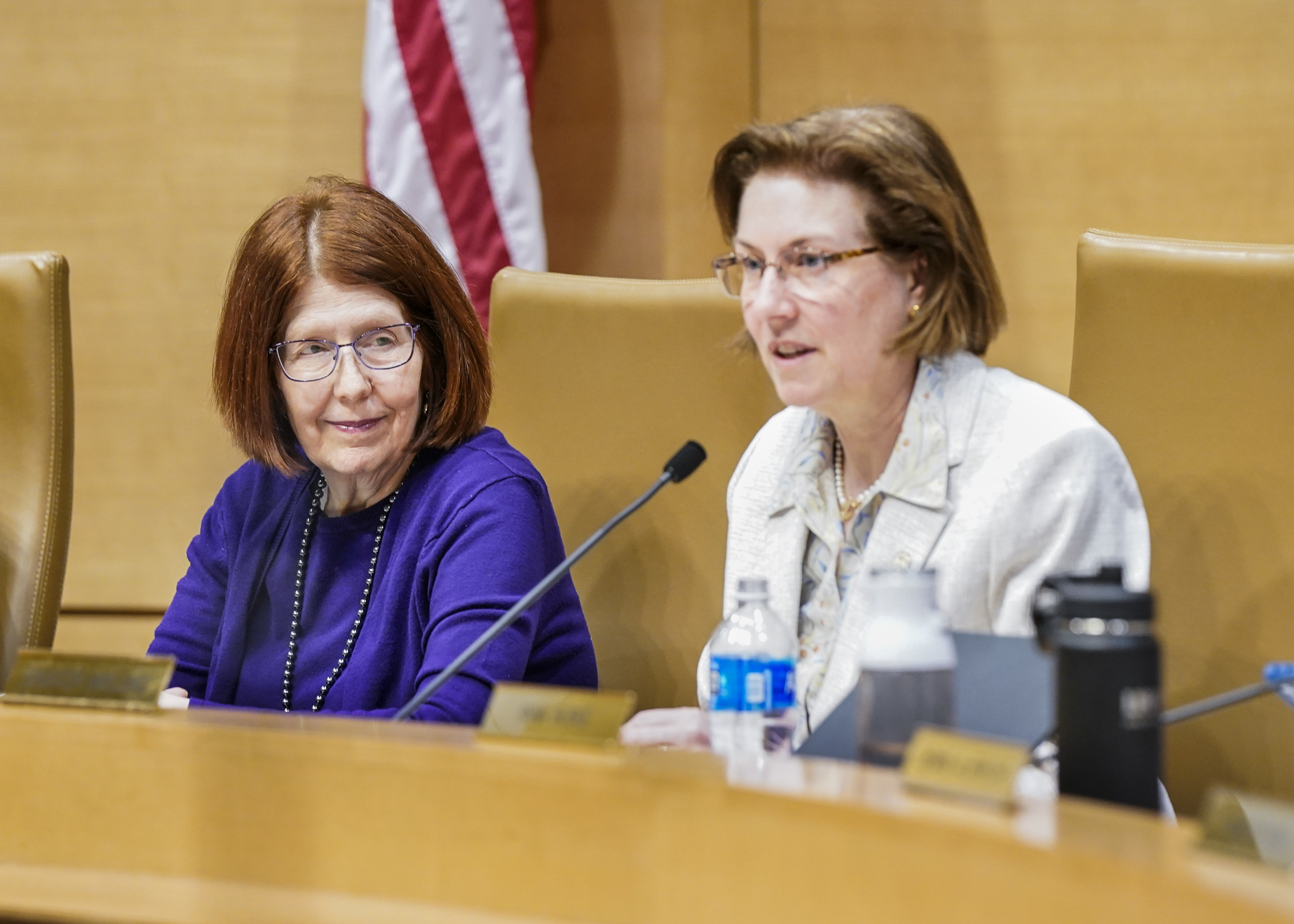Conference committee embarks on path to finalized state health budget

From Greater Minnesota to the Twin Cities, health impacts everyone across the state and whether the ultimate omnibus health and human services appropriations bill will help or hinder you is under debate.
By a group of 10 lawmakers.
Rep. Tina Liebling (DFL-Rochester) and Sen. Melissa Wiklund (DFL-Bloomington) co-chair the conference committee charged with settling differences between the House and Senate versions of HF2930/SF2995*.
Side-by-side language and comparisons were not available Wednesday afternoon, when the group held its first meeting, but members were given a walkthrough of the fiscal distinctions between the two bills. Members will likely get back together over the next few days.
A spreadsheet shows total net appropriations of $6.04 billion for the House proposal; $63.74 million less than the Senate.
More specifically, the House intends to allocate $1.25 billion to the Department of Human Services and $332.22 million to the Department of Health. Meanwhile, the Senate would devote $1.08 billion and $300.15 million, respectively.
House-only provisions include:
- $150.27 million for emergency shelter grants;
- $25 million for information technology services for a new state agency, the Department of Children and Families;
- $23.11 million for the “Keeping Nurses at Bedside Act”;
- $20 million for the critical access dental infrastructure program;
- $19.42 million for the comprehensive drug overdose and morbidity prevention act; and
- $12 million for additional funding to existing tribes in the American Indian Child Welfare Initiative.
One of the largest financial differences involves a new child care provider retention payments program. The Senate wants to spend $243.16 million on it and the House would prefer $190.66 million.
Additionally, the Senate intends to allocate $76.71 million for MNsure while the House suggests $31.62 million. Most of this gap arises from the Senate wanting to spend $45 million for cost-sharing reductions that the House does not match. Though, the House does have $4.28 million in cost-sharing reductions for gold plans in the state-run insurance program.
Both bodies plan to spend additional funding for an emergency services program, but the numbers have a wide gap. The House suggests $40 million, and the Senate would offer $8.65 million.
Another inconsistency in spending includes information technology projects for service delivery transformation, which the House would fund with $44.57 million compared to $15.97 million from the Senate.
Some other potential changes would save the state money. These include:
- modifying the drug formulary committee would save $59.54 million (both bills);
- reinstating a Certified Community Behavioral Health Clinic Demonstration Program could save $25.99 million according to House language and $26 million based on Senate stipulations;
- repealing the Women’s Right to Know and Positive Alternatives programs would save $7.36 million from a House-only provision;
- opting out of managed care for medical assistance, which could save $7.04 million (both bills); and
- eliminating the chronic conditions spending report could save $370,000, a provision in both bills.
Related Articles
Search Session Daily
Advanced Search OptionsPriority Dailies
Legislative leaders set 2026 committee deadlines
By Lisa Kaczke Legislative leaders on Tuesday officially set the timeline for getting bills through the committee process during the upcoming 2026 session.
Here are the three deadlines for...
Legislative leaders on Tuesday officially set the timeline for getting bills through the committee process during the upcoming 2026 session.
Here are the three deadlines for...